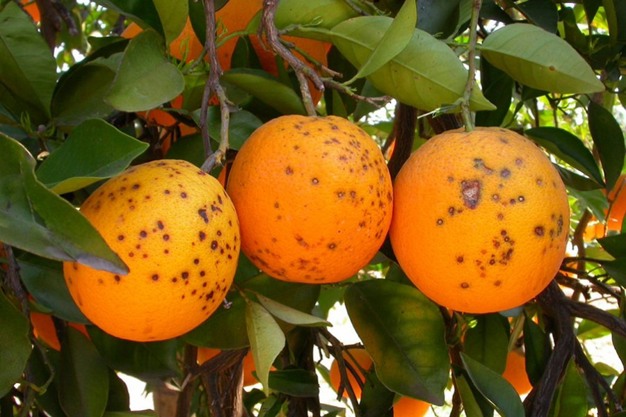Intercitrus, the Spanish Citrus Inter-branch organization, met on Monday with a prominent representation of the Ministry of Economy, Trade, and Business, headed by the Director General of Trade Policy, Julián Conthe, to jointly address the Spanish Government's actions before the panel opened within the World Trade Organization (WTO) against the EU due to a complaint from South Africa that questions the phytosanitary measures aimed at preventing the introduction of the false moth (Thaumatotibia leucotreta) and the black spot (Phyllosticta citricarpa) in Europe.

The president of Intercitrus, Celestino Recatalá, - who was accompanied during the meeting in Madrid by the technical secretary of ASAJA Alicante-Jóvenes Agricultores, Ramón Espinosa, and the president of the Citrus Management Committee, Inmaculada Sanfeliu- valued positively "the willingness shown by the Spanish government to defend the plant health of our citrus sector. The government representatives familiar with the EU's relations with the WTO are aware of the phytosanitary risk posed by citrus imports from third countries, especially South Africa. They also share with the citrus sector the need to maintain and even strengthen control measures to prevent the entry of harmful quarantine pests and diseases, such as citrus black spot and false moth, which, in addition to affecting citrus, can cause serious damage to many agricultural and forestry species."
The inter-branch organization defended the phytosanitary protocol relating to the black spot and the cold treatment established for South African oranges and oranges from other third countries to prevent the entry of the false moth. According to Intercitrus, the cold treatment approved by the EU has more benevolent technical conditions than those requested by other powers - such as the United States, China, Japan, and South Korea. Despite this, South Africa -which complies and doesn't complain about the more demanding impositions of the other importing countries- has only taken the EU to the WTO. As for black spot, in 2024 South Africa accumulated a total of 31 interceptions of this quarantine disease in its citrus shipments to the EU.
 For more information:
For more information:
AVA-ASAJA
Email: info@avaasaja.org
www.avaasaja.org
